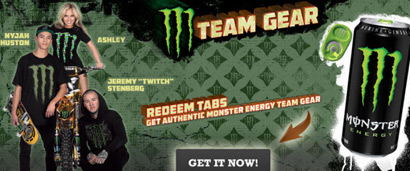
Last week, Corona, Calif.-based Monster Beverage filed a suit against San Francisco city attorney Dennis Herrera. On Monday, Herrera filed suit against
Monster.
Monster’s suit, filed April 29 in California U.S. District Court, charges that Herrera is making illegal demands that Monster change its formulations (reduce caffeine)
and its marketing practices. Monster is seeking to enjoin the demands, which it says are preempted by federal law and prohibited by the First and Fourteenth Amendments.
Herrera’s suit, filed in San Francisco Superior Court, charges Monster with violating California's Unfair Competition Law and Sherman Food, Drug and Cosmetic Law through illegal
conduct deemed harmful to consumers and competitors.
advertisement
advertisement
Herrera’s consumer protection unit, citing “scientific consensus” that highly caffeinated drinks pose
significant health risks to young people, began investigating Monster’s marketing and business practices last October.
A Monster spokesperson told CSP.net that Monster gave Herrera’s office “voluminous”
information detailing the evidence that its energy drinks are safe, but “when it became evident that Herrera was more interested in dictating terms to Monster that exceeded his legal authority
than engaging in good-faith, evidence-based discussions, Monster felt it had no choice but to seek relief from the court."
Herrera asserts that Monster
“preemptively” sued him in an attempt to halt his office’s lawsuit and “win race to the courthouse,” although his office had been working with Monster “in good
faith to negotiate voluntary changes to its youth-targeted marketing practices.”
In announcing his lawsuit, Herrera charged that Monster is “unique among energy
drink makers for the extent to which it targets children and youth in its marketing, despite the known risks its products pose to young people's health and safety."
The suit cites
marketing tactics including the company’s Monster Army site, which it says uses children as young as six years old to promote the beverages; and a Monster Energy Drink Player of the Game series
that shows photos featuring high school athletes, “including minors, displaying more than 12 times the generally recommended daily maximum of caffeine for adolescents.”